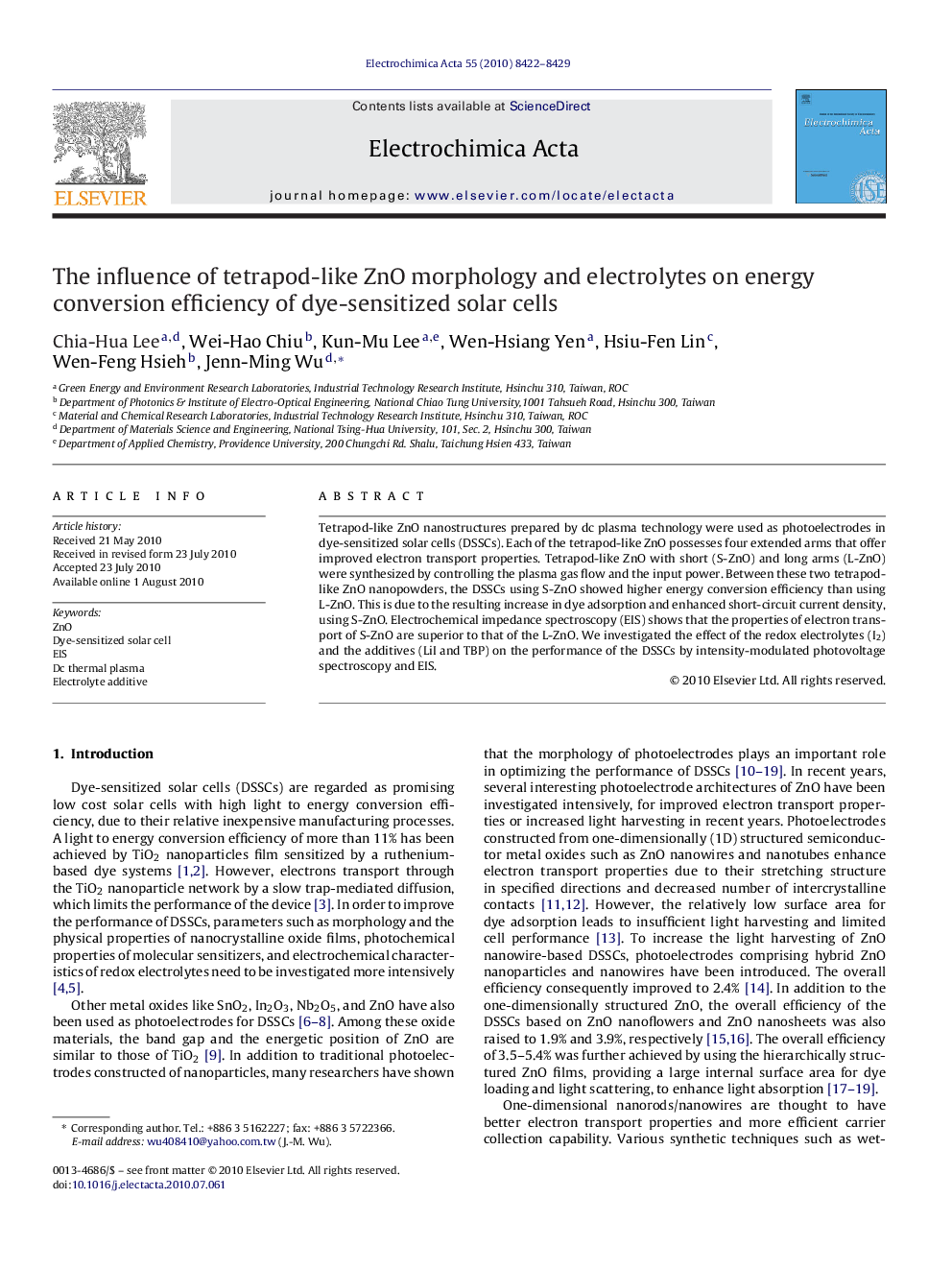| Article ID | Journal | Published Year | Pages | File Type |
|---|---|---|---|---|
| 189988 | Electrochimica Acta | 2010 | 8 Pages |
Tetrapod-like ZnO nanostructures prepared by dc plasma technology were used as photoelectrodes in dye-sensitized solar cells (DSSCs). Each of the tetrapod-like ZnO possesses four extended arms that offer improved electron transport properties. Tetrapod-like ZnO with short (S-ZnO) and long arms (L-ZnO) were synthesized by controlling the plasma gas flow and the input power. Between these two tetrapod-like ZnO nanopowders, the DSSCs using S-ZnO showed higher energy conversion efficiency than using L-ZnO. This is due to the resulting increase in dye adsorption and enhanced short-circuit current density, using S-ZnO. Electrochemical impedance spectroscopy (EIS) shows that the properties of electron transport of S-ZnO are superior to that of the L-ZnO. We investigated the effect of the redox electrolytes (I2) and the additives (LiI and TBP) on the performance of the DSSCs by intensity-modulated photovoltage spectroscopy and EIS.
